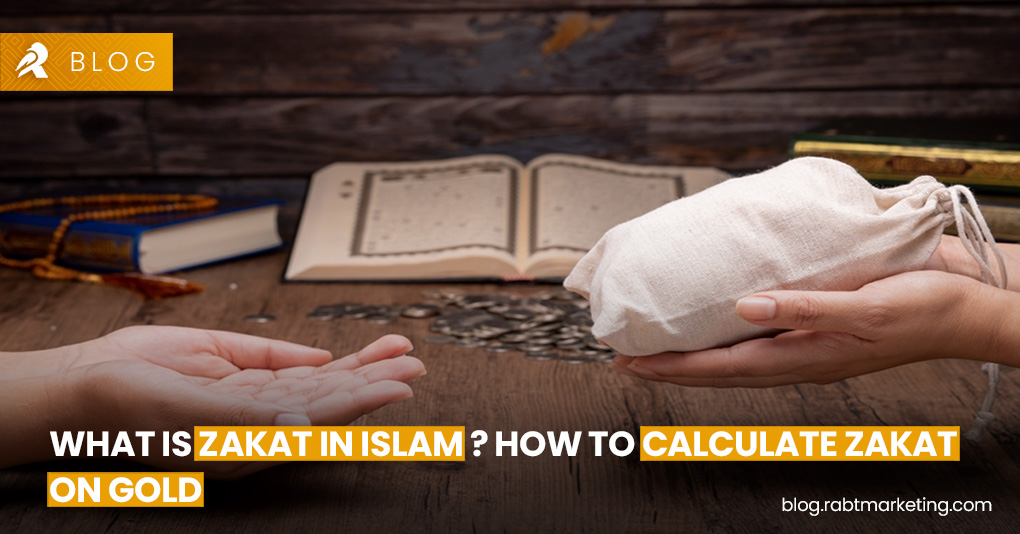Zakat is one of the 5 Five Pillars of Islam, which are the core practices in Islam. It’s a mandatory form of charity that Muslims are expected to give each year. Zakat, derived from the Arabic root “z-k-a,” meaning purification or growth, is an act of worship ordained by Allah (God) in the Quran and exemplified by the Prophet Muhammad (peace be upon him). It represents a fundamental duty for Muslims, serving as a means of purifying one’s wealth and sharing blessings with the needy individuals
Key Aspects of Zakat
We discuss key aspects of Zakat as following.
Obligation: Zakat is obligatory for all adult, sane Muslims who meet certain wealth criteria.
Purpose: It serves as a way to purify one’s wealth and redistribute it to those in need. It promotes social justice and helps the poor and less fortunate.
Amount: The amount of Zakat is typically 2.5% of a Muslim’s surplus wealth that they have owned for a full lunar year. There’s a minimum amount of wealth required to be eligible for Zakat, known as the “Nisab”. A muslim who has that minimum required wealth, Nisab is known as “Sahib-e-Nisab”.
Recipients: The Quran designates eight categories of people who can receive Zakat funds, including the poor, the needy, and those in debt.
Zakat differs from voluntary charity (Nafli Sadaqah) in Islam because it’s mandatory. It’s considered a form of worship and a way to express gratitude for one’s blessings.
How to Calculate Zakat on Gold

Calculating Zakat on gold involves two main factors:
- The weight of your Gold
- Its current market value.
Here’s a step-by-step guide which you have to follow to calculate zakat on Gold.
Check if you meet the Nisab: There’s a minimum amount of wealth required to be obligated to pay Zakat. This threshold, known as the Nisab, is equivalent to 87.48 grams of pure gold. If the total value of your gold (and other zakatable assets) is less than the current market value of 87.48 grams of gold, you wouldn’t be required to pay Zakat on it.
Find the current market price of gold: Next step is to determine the current price of gold per gram in market online through financial websites or gold retailers.
Calculate the total value of your gold: Multiply the weight of your gold in grams by the current market price per gram.
Apply the Zakat rate: Zakat on gold is mandatory at a rate of 2.5%. Multiply the total value of your gold you calculated in step 3 by 2.5%.
That’s your Zakat amount! The resulting figure is the amount of Zakat you owe on your gold holdings.
Some Additional Considerations Regarding Zakat
- Most Islamic scholars recommend using the market value of your gold on the date of Zakat calculation, rather than the purchase price.
- If your gold is part of jewelry that contains gemstones or other materials, you only consider the weight of the gold portion for Zakat purposes. You may need to estimate the gold weight or consult a jeweler for an accurate assessment.
- Zakat is typically calculated and paid annually on the anniversary of when you first acquired wealth that meets the Nisab threshold.
Zakat Calculators
There are also Zakat calculators available online that can simplify the process for you. These tools can help you factor in the current gold price and perform the calculations automatically.
FAQ’s (Frequently Asked Questions)
1. Is Zakat obligatory for all Muslims?
Ans. Yes, Zakat is obligatory for Muslims who possess wealth above the Nisab threshold.
2. Can Zakat be given to non-Muslims?
Ans. Yes, Zakat can be given to non-Muslims in certain circumstances, such as those who are in strong need or facing hardship, provided it does not contradict Islamic teachings.
3. Can Zakat be given to non-Muslims?
Ans. Yes, Zakat can be given to non-Muslims in certain circumstances, such as those who are in need or facing hardship, provided it does not contradict Islamic teachings.
4. What is the Nisab threshold for Zakat?
Ans. The Nisab threshold for Zakat varies depending on the type of wealth but is typically calculated based on the value of gold or silver equivalent to the cost of basic necessities for a specific period.
5. Are there exceptions to paying Zakat?
Ans. Certain exemptions exist for individuals who do not meet the Nisab threshold or are facing extreme hardship, such as debtors with no assets or those unable to fulfill their basic needs.
6. How is Zakat different from other forms of charity?
Ans. Zakat is distinct from other forms of charity in its mandatory nature, specific calculation methodology, and designated recipients, whereas voluntary charity (Sadaqah) offers greater flexibility in terms of amount, timing, and beneficiaries.
For More informative articles, Visit Rabt Marketing Website
Final Words
Summing it all up, Zakat is avery important and fundamental pillar of Islam and vital aspect of fairness in society, representing compassion, unity, and economic equality. By fulfilling the obligation of Zakat, Muslims uphold the principles of charity and righteousness, contributing to the prosperity of society and the fulfillment of Allah’s commandments.

